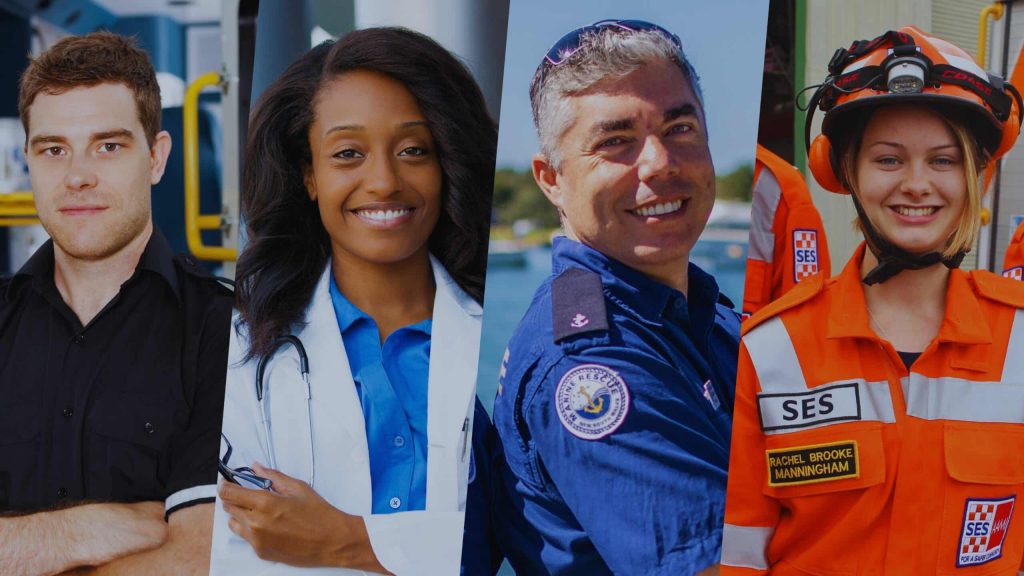
FIRST RESPONDERS
The term “First Responders” traditionally, is used to refer to fire fighters, police officers and paramedics. However, significant debate exists within scientific and medical literature, concerning which professions should be included as first responders. For example, numerous studies include “000” dispatchers, Correctional Workers, Nurses, Physicians, and Public Safety Personnel such as SES, VRA and RFS volunteers.
Although the specific roles of these different groups vary, they all face multiple potentially psychologically traumatic incidents within the course of their duties. Their service to the state places them at a heightened risk of experiencing mental health difficulties and disorders including PTSD, depression, anxiety, and burnout. This heightened risk of exposure to potentially traumatic events can lead to them becoming ‘secondary traumatic victims’.
These varied groups of professionals are the people that we all turn to in our hour of need, they in return need our care and support.
If Aboriginal and Torres Strait Islander families fear first responders, the reasons can be found in the past as well as the present. Indigenous Australians tend to have complex needs and suffer multiple types of socioeconomic disadvantage including poor health outcomes. It is imperative that access and relations between the Aboriginal and Torres Islander Communities and first responders remain positive. It may help to understanding that loss, grief, trauma and bereavement are more a collective and cumulative experience in Indigenous communities.
Developing and maintaining trust enables first responders support Indigenous people, families and their communities in their journey through bereavement. Trust aids in reconciliation and acknowledges Australia’s devastating history, developing trust empowers Indigenous communities to heal from within.